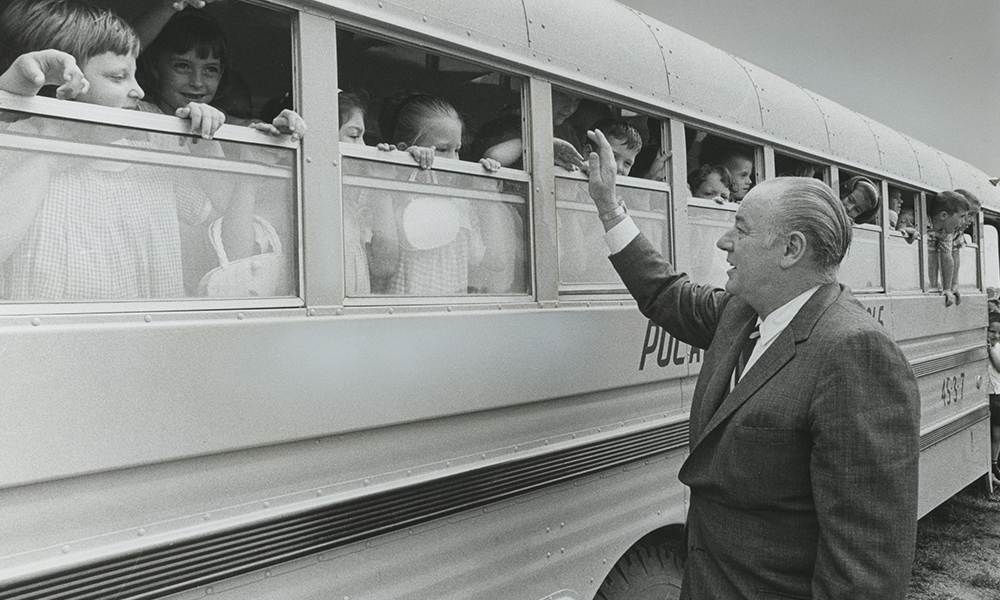by Austin DuVall
Editor’s Note: Several quotes attributed to Winthrop Rockefeller in this article come from a series of unpublished manuscripts in which he writes about his time in Arkansas and as its governor.
This February, the Institute is hosting the first collaborative session of the Arkansas Education Policy Initiative, a new Institute program focused on improving the state’s national standing in K-12 educational outcomes. This work provides an opportunity for the Institute to pursue its mission of continuing Gov. Winthrop Rockefeller’s collaborative approach to creating transformational change in the world of education policy in Arkansas – an area for which he demonstrated much concern.
“Education is the universal key, the key everywhere to everything that brings progress.”
Gov. Winthrop Rockefeller
Winthrop saw education as a necessity for the prosperity of Arkansas. The equation was simple: greater educational opportunities meant more possibilities and a higher standard of living for Arkansans. He also knew if Arkansas could improve its public education system, it would serve as a marketing tool for the state, bringing with it an increase in jobs and improvements to other areas important to everyday people.
In addition to specialized areas such as the Boys Industrial School Foundation in Pine Bluff, which aided incarcerated teens, areas that received the largest portion of his efforts and funds were the Rockwin Fund (the predecessor to the Winthrop Rockefeller Foundation), the Arkansas Foundation of Associated Colleges, and the Morrilton School District.
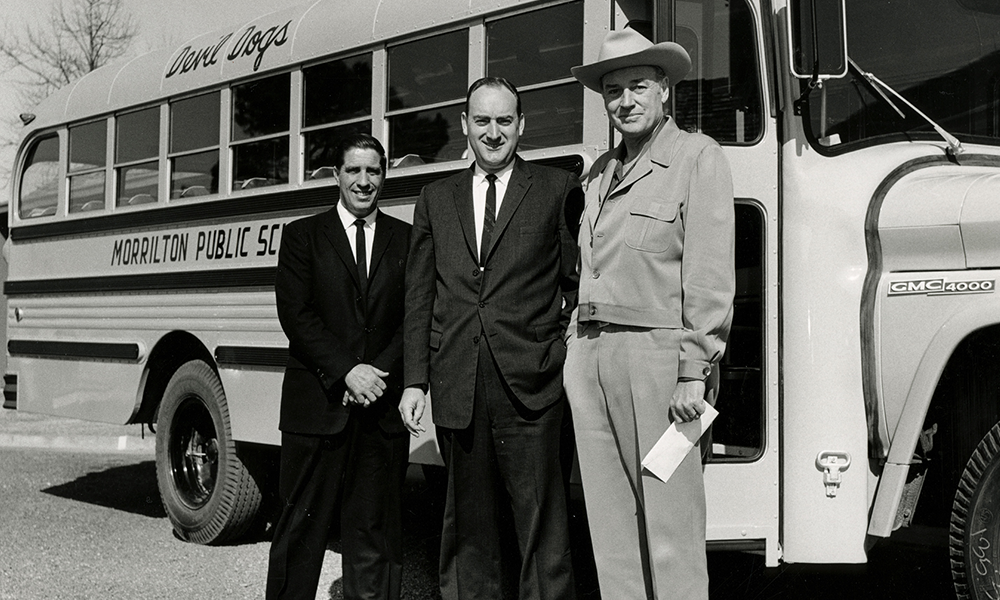
Winthrop’s involvement with the Morrilton School District is an especially clear-cut case of his belief in the power of quality public education. In 1956, the Rockwin Fund partnered with the school district to establish the John Hugh Reynolds Elementary School. Now named Morrilton Primary, the state-of-the-art model school not only enhanced educational opportunities in Conway County, but also served as an example to school districts across Arkansas.
“Never once did I doubt that our top priority had to go to education,” he wrote in the 1967 A Paper on Education. “Our oldest problems are rooted there, and surely our brightest opportunities for the future are to be found there.”
The model school was built with what is today $7 million of Winthrop’s personal wealth. From 1956 to 1960, teacher salaries, test scores, retention rates, and college admissions all rose dramatically. The project, which started with a five-year roadmap, included plans to expand programs for fine arts, an improved library and physical education facilities, facilities for children with disabilities, and more.
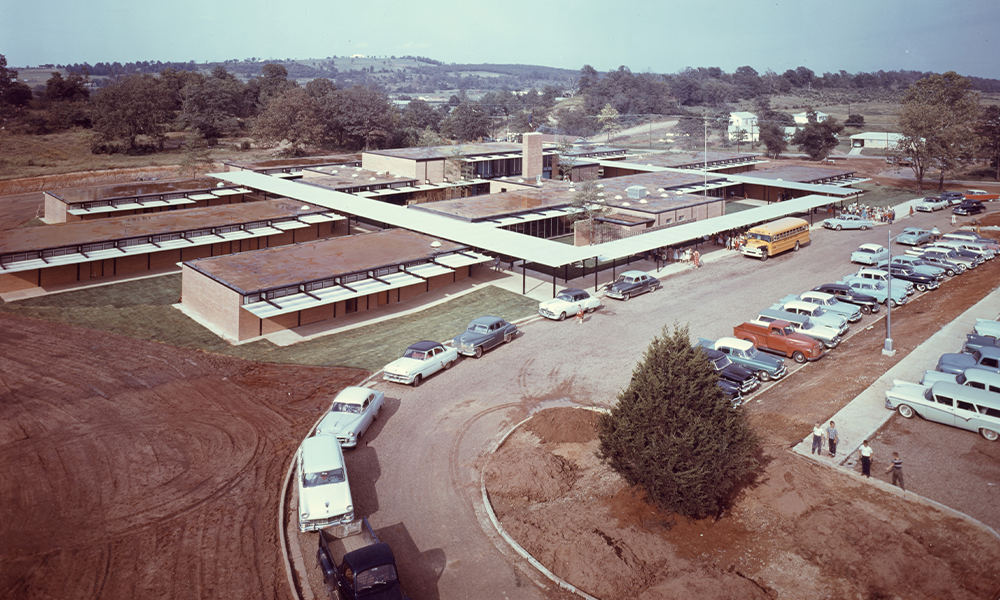
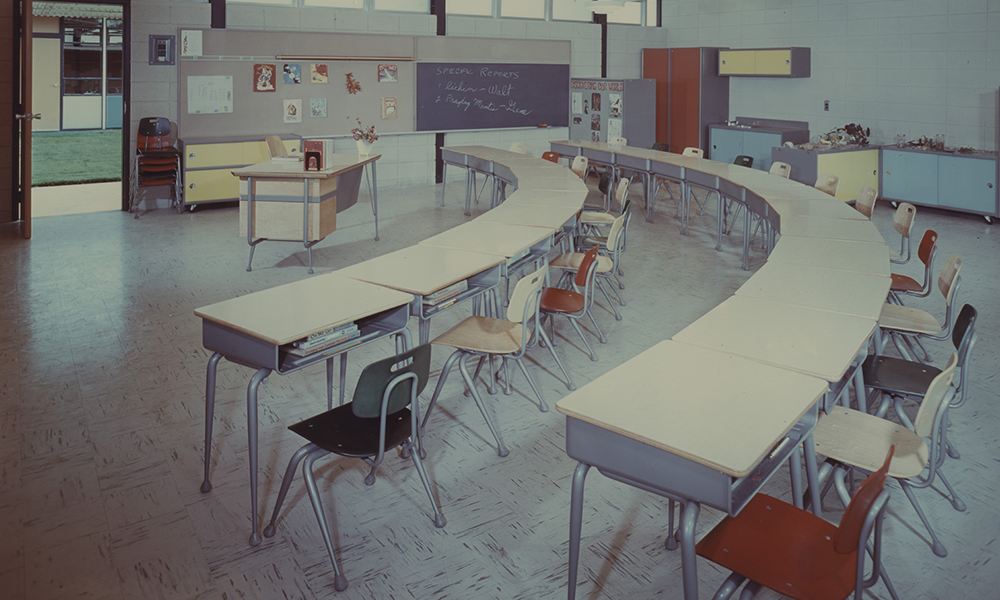
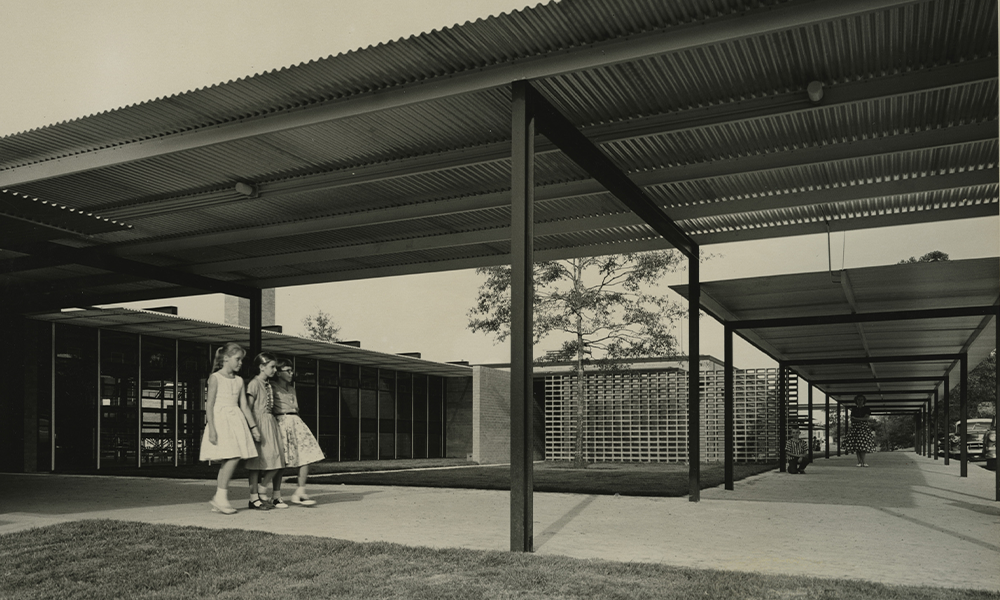
Above: The John Hugh Reynolds Elementary School in the late 1950s.
It is unfortunate that the project was discontinued in 1960 after the community voted down a tax increase needed to continue the model school as intended. Winthrop was, understandably, disheartened by this. He believed in the transformative power of education, but he also knew that he could not use his wealth to force his views. He wrote that this setback contributed to his decision to enter politics and run for governor.
During his first term in 1967, he called a Governor’s Conference on Education. It was the first of its kind to ever be held in Arkansas. Winthrop mostly focused on short-term goals throughout his two terms in office, considering he was the first Republican governor elected in the state since Reconstruction and was met with regular resistance from lawmakers. For example, during the 1969 legislative session, more than 20 different bills were introduced calling for the establishment of vocational schools in various counties. None of the bills passed.
“I have called education a sword, an economic weapon,” Winthrop wrote. “Unquestionably it is, looking at both the hard and promising realities of life in my state. I am aware that education is more than that; and man more than a unit of productivity. My innermost regard for teachers has nothing to do with their contribution to the ever-rising economic scale. In their hands, I believe, is something no less important than the one commodity which, in the final accounting, can separate all men from prejudice, and pain, and poverty of the mind and body. That is knowledge.”
It is our hope at the Institute that Arkansas Education Policy Initiative participants will learn from Winthrop’s triumphs and frustrations with the state’s education system, and will bring their own knowledge and experience to a collaborative session later this month. In addition to being an economic boost, we believe this program could lead to more funding for education initiatives across the state. As Winthrop once wrote, there is “no other way in which we can improve society” than by improving systems, like education, which “give individuals ways to improve themselves.”

